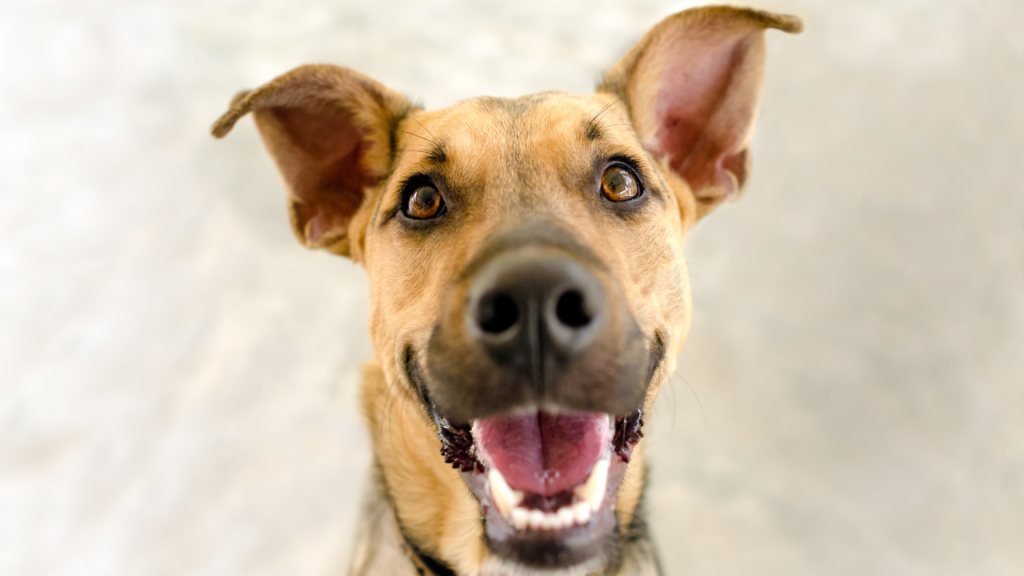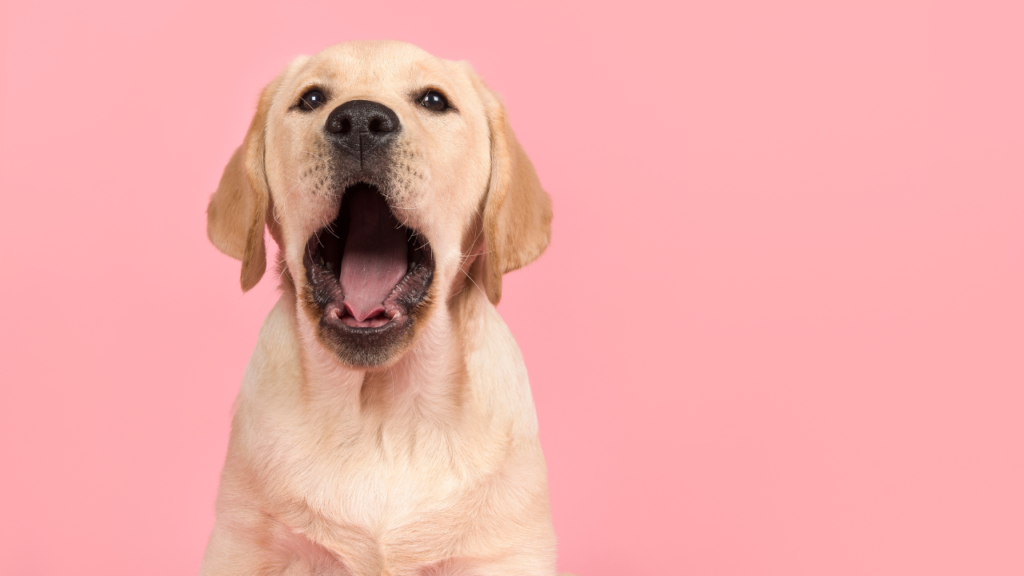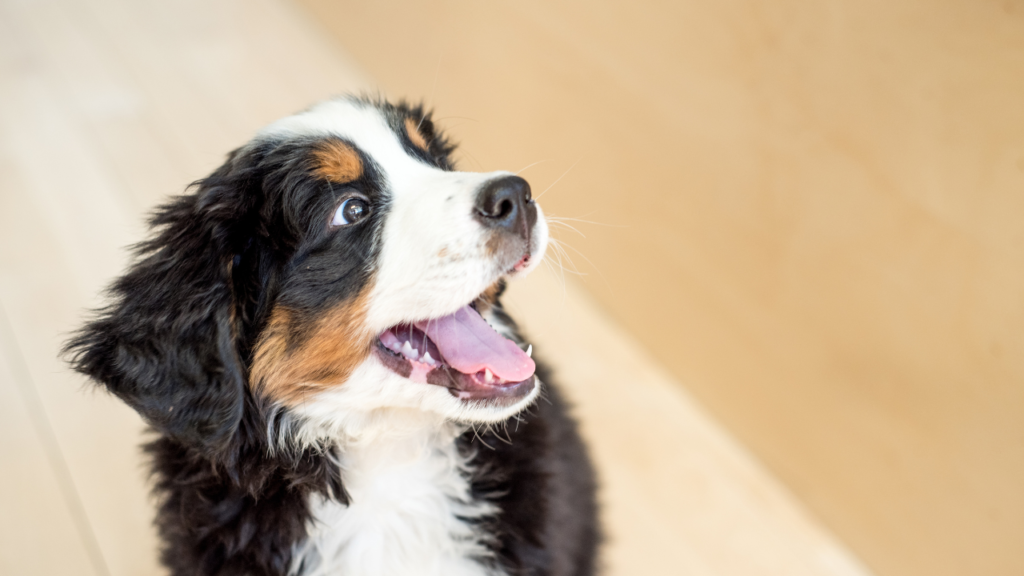
The most common reasons behind this dog’s teeth chatter.
Did you know that dogs and humans share comparable brain structures? Dogs, like humans, exhibit emotions such as happiness, rage, enthusiasm, love, and contempt. However, a dog’s brain is more like that of a human child than that of an adult, therefore their emotional range is relatively limited. Your dog’s expressions can range from a happy smile to an irritated scowl, yet some behaviours baffle even the most experienced pet parents.
Have you ever wondered why dogs’ teeth chatter? There are various reasons why dogs’ jaws chatter. Some are basic and readily treated, such as intense emotions, while others necessitate a visit to the veterinarian. What does it signify if your dog’s teeth are chattering?
Why do dogs chatter their teeth?

As a pet parent, you get to know about your dog’s personality traits both inside and out. You know what his favourite toy is, what food he prefers, and where he sleeps. It’s normal to be concerned if your dog develops an unusual behaviour, such as chattering teeth. But don’t worry, there are a few completely normal reasons why your puppy might be chattering his teeth.
Dog teeth rattle when it’s cold outside.
As your dog has a fur coat, it doesn’t imply he’s always cosy and warm. When the temperature drops, a dog’s teeth may begin to chatter, just like ours do in cold weather. When the weather becomes colder, try not to let your dog outside for extended periods. If you must leave your dog outside during the day, or if you have a livestock guardian dog, ensure he has access to a barn or heated dog house where he may warm himself up as needed.
Your puppy is excited about something.
Have you ever noticed a cat’s teeth chatter? It frequently occurs when a playful feline sees a bird or a reptile through a window, and it is usually followed by chirping. While this behavioural quirk/hunting instinct is less common in dogs, some might get so excited that their teeth rattle. Do not be frightened if your dog’s teeth start chattering right after playtime. Your dog is fine; he simply cannot contain his joy.
Your dog is taking in a fragrance.
Your dog’s olfactory system is extremely powerful, but did you know he has a secondary scent-collection mechanism? This mechanism is located in your puppy’s mouth. When this secondary scent-collection mechanism is active, your dog’s teeth may clatter and he will most likely drool excessively. This behaviour is most commonly observed in intact male dogs, but it can occur in any dog.
Chattering might be an indication of stomach distress or nausea.
Some dog owners detect their dog’s teeth chattering just before vomiting or when they exhibit other symptoms of stomach discomfort. This may be the case if your dog refuses to eat or begins to eat grass, but gastrointestinal distress is rarely cause for concern.
What could the chattering of dog teeth indicate?

In most cases, your dog’s teeth chattering is nothing to worry about. Unfortunately, not every motive is innocuous. Some are more worrying and should be taken to the veterinarian as soon as possible. Teeth chattering can occasionally be a symptom of the following health issues.
An abscessed tooth
If your dog has an abscessed tooth, he may chatter his teeth to relieve the pressure from infection and inflammation. Other symptoms to watch for include facial swelling, excessive drooling, lack of appetite, and poor breath.
Periodontal disease.
By the age of two, about 90% of all dogs have periodontal disease, which is a degenerative condition caused by the accumulation of germs along the gum line. Periodontal disease in your dog can be identified by bloody gums, drooling, loss of appetite, and teeth chattering. You may assist avoid this by ensuring that your dog receives regular vet and dental examinations.
Anxiety
Dogs, like humans, can suffer from anxiety. Excessive barking, pacing, panting, teeth chattering, and chewing on household items are all signs that your dog is anxious. If you believe this is the case, consult your veterinarian regarding the use of behavioural training or medication to help alleviate your dog’s problems.
Seizure Disorder
Dogs with certain neurological diseases, such as epilepsy, will chatter their teeth during convulsions. In fact, epilepsy is far more common in dogs than in people. Another further possibility is focal motor seizures, which are centred in your dog’s mouth and will most likely cause little issue. A veterinarian must diagnose seizures, but you may help by keeping your dog safe throughout them and shooting a video for your physician – if you are able!
Canine multisystem degeneration
Canine multiple system degeneration is a congenital condition that causes your dog’s teeth to chatter in its early stages. The condition progresses and can cause difficulty standing and walking in later stages. While there is no cure for this illness, which primarily affects Kerry Blue Terriers and Chinese Crested dogs, your veterinarian may prescribe medicine to assist alleviate symptoms.
How to deal with a dog’s teeth chattering
It can be shocking, and perhaps frightening, to witness your dog clack its teeth for the first time, but what should you do about it? Ultimately, your behaviours are determined by what is generating the behaviour, therefore you must first determine what is going on. Consider whether the conditions fit the requirements for any of the benign reasons of chattering, such as excitement or scent tracking. If you were just out for a stroll or are in a very cold environment, this is probably a typical reaction.
If your dog’s chattering does not stop within a few minutes, you should keep a closer eye on him. Of course, if you suspect an emergency, such as a sudden seizure, please get treatment immediately. Other symptoms, such as drooling or pawing at the lips to signal pain, may help you narrow down what’s going on, but if you’re still stumped, it’s time to call the vet.
While some reasons of your dog’s chattering teeth are harmless, others necessitate medical care. If your dog is not cold and you haven’t finished a walk or an long play session in the backyard, we suggest taking him to the vet at the first indication of teeth chattering. Your dog’s health is your number one priority, and most occurrences of teeth chattering can be easily managed with immediate care.
